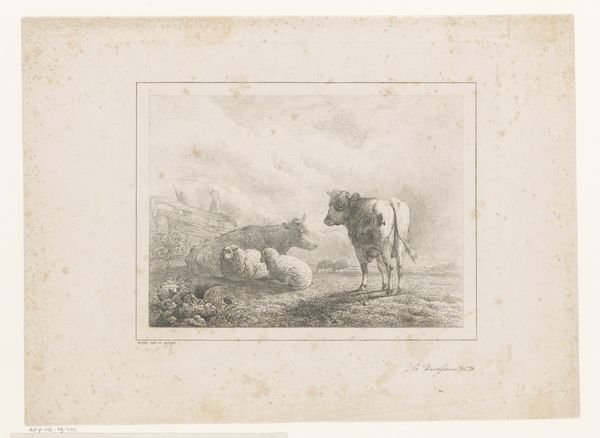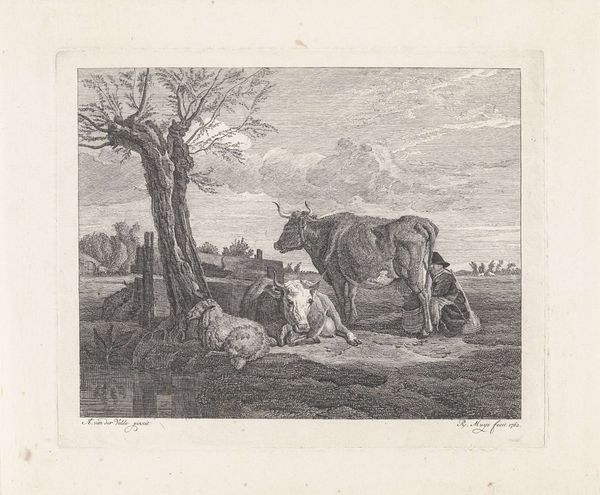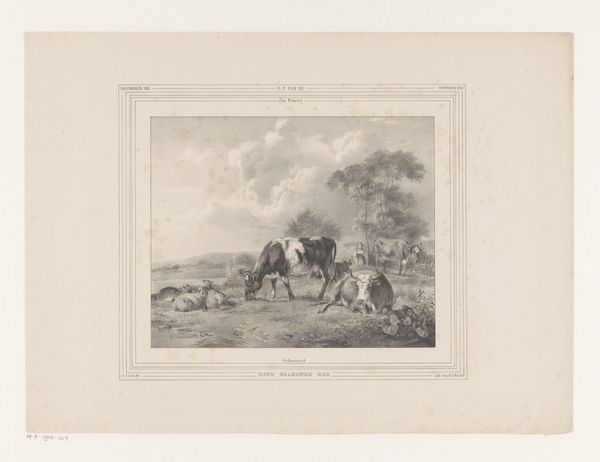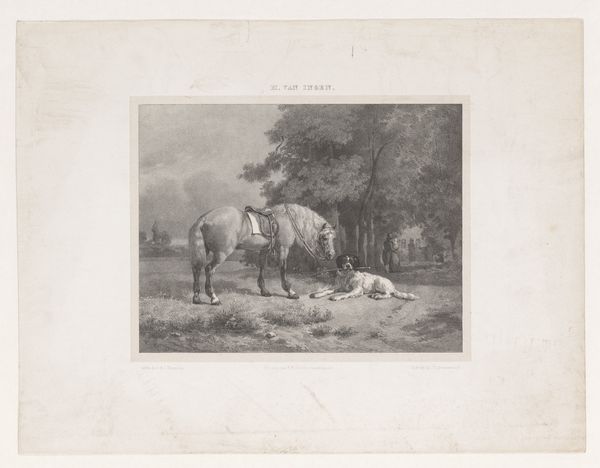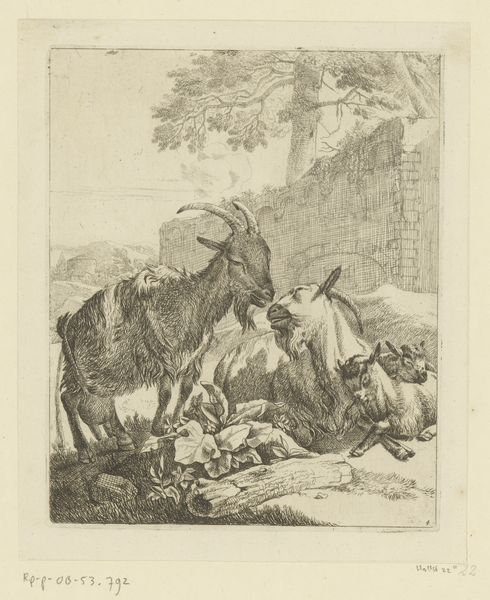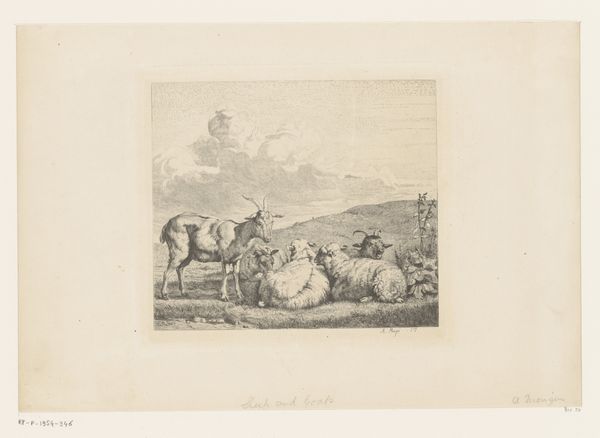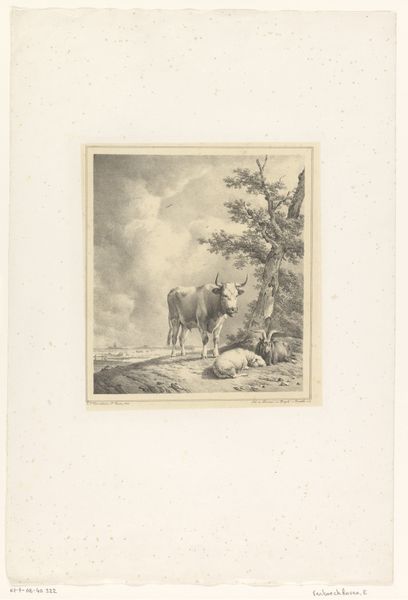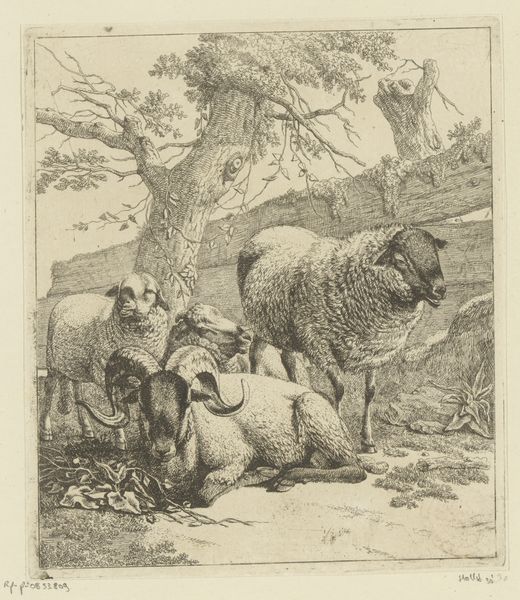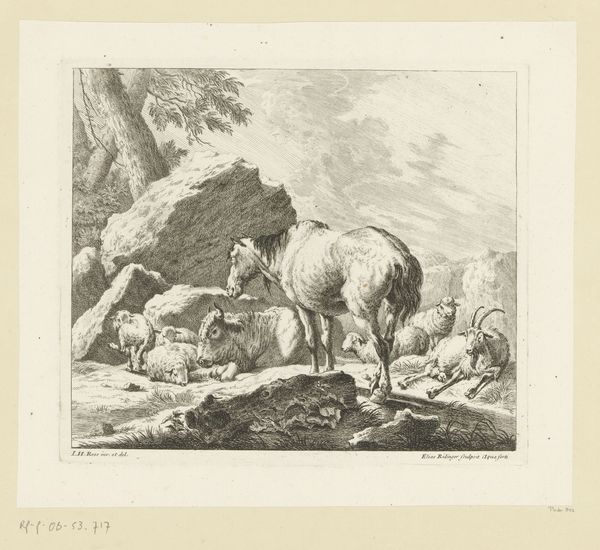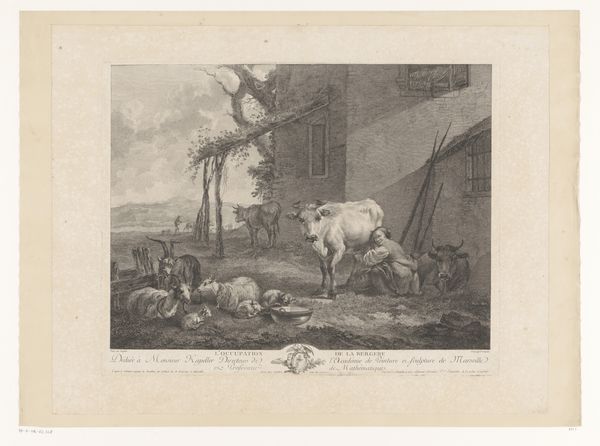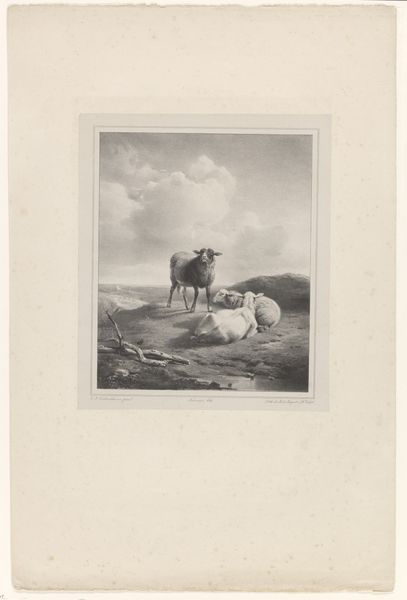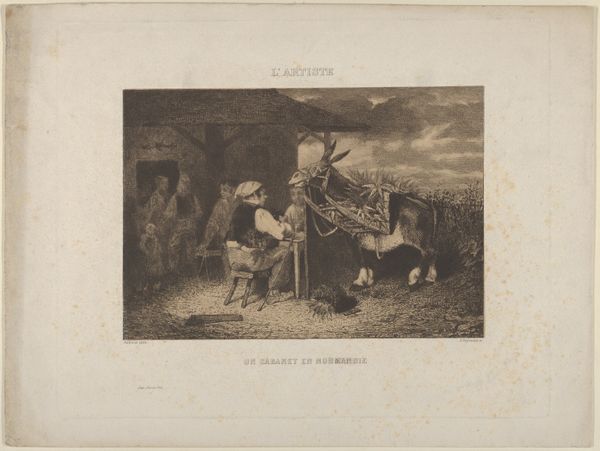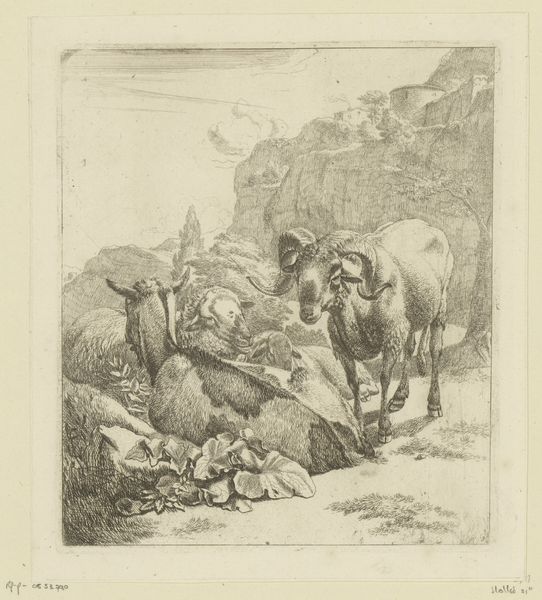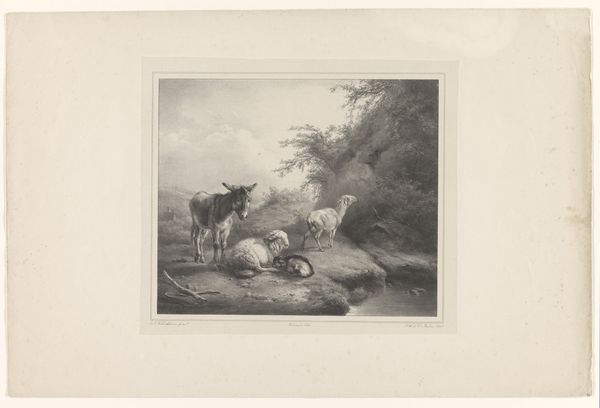
print, engraving
# print
#
landscape
#
figuration
#
romanticism
#
19th century
#
genre-painting
#
engraving
#
realism
#
monochrome
Dimensions: height 365 mm, width 277 mm
Copyright: Rijks Museum: Open Domain
Here is the description of Eugène Verboeckhoven's monochrome print at the Rijksmuseum: ‘Herder bij vier schapen in een landschap’. The print renders a peaceful scene of a shepherd overseeing his flock within a muted palette of grey and white. The composition centers on the interplay between the figures and the landscape, creating a sense of depth. The shepherd stands at the periphery, his presence a quiet contrast to the reclining sheep. The landscape is not merely a backdrop but an active participant in the print's narrative. The cloud-filled sky introduces a play of light and shadow that adds dynamism to the otherwise still scene. The print invites us to consider how visual elements, such as line and texture, contribute to the overall meaning. Verboeckhoven’s emphasis on formal structure invites reflection on how art destabilizes fixed categories and explores new modes of perception. Consider how Verboeckhoven has used the subtleties of monochrome to challenge our perceptions of form and space. This is not just an aesthetic choice but a commentary on the evolving dialogues in art during his time.
Comments
No comments
Be the first to comment and join the conversation on the ultimate creative platform.
